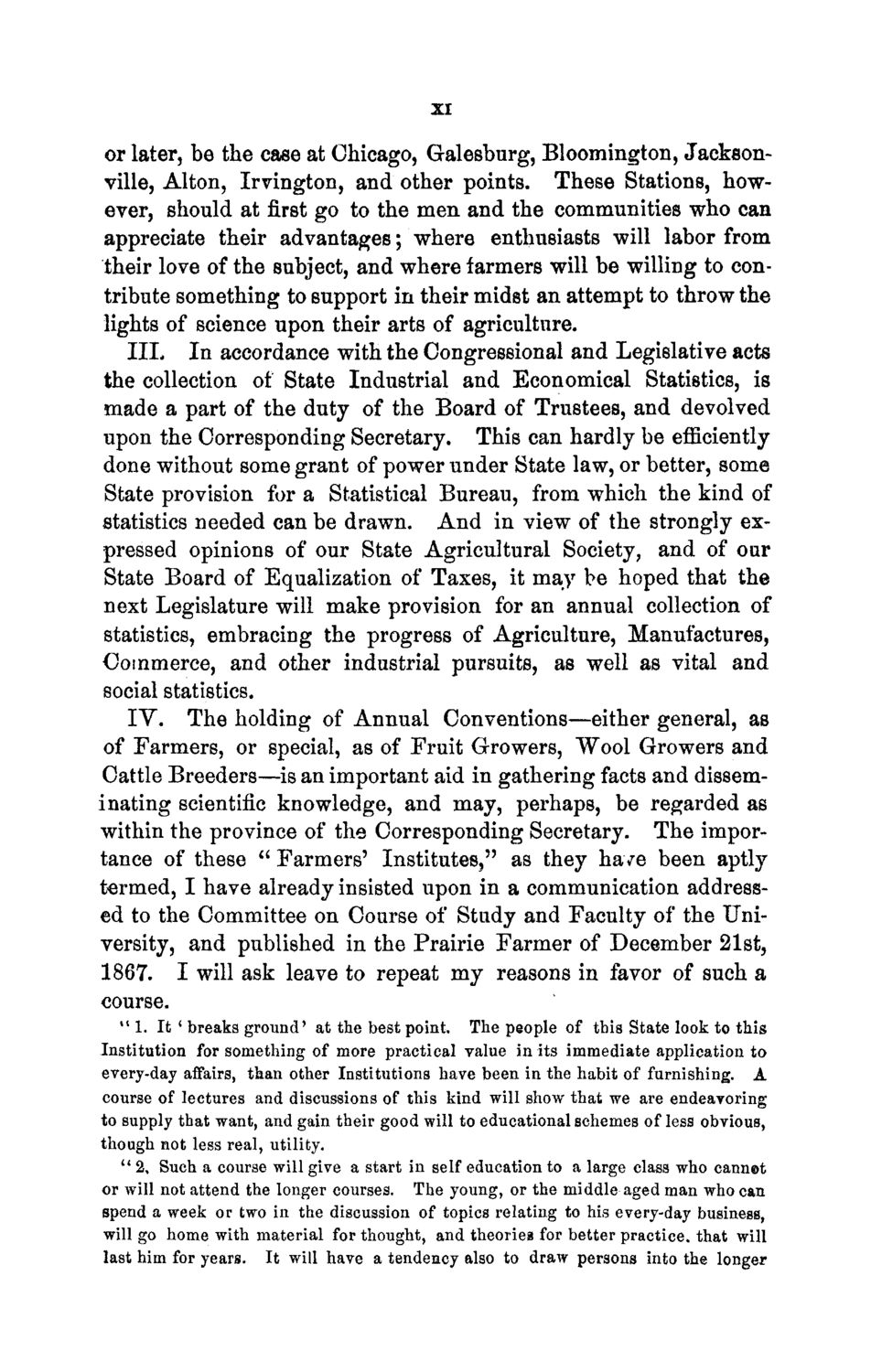| |
| |
Caption: Board of Trustees Minutes - 1868
This is a reduced-resolution page image for fast online browsing.

EXTRACTED TEXT FROM PAGE:
XI or later, be the case at Chicago, Galesburg, Bloomington, Jacksonville, Alton, Irvington, and other points. These Stations, however, should at first go to the men and the communities who can appreciate their advantages; where enthusiasts will labor from their love of the subject, and where farmers will be willing to contribute something to support in their midst an attempt to throw the lights of science upon their arts of agriculture. I I I , In accordance with the Congressional and Legislative acts the collection of State Industrial and Economical Statistics, is made a part of the duty of the Board of Trustees, and devolved upon the Corresponding Secretary. This can hardly be efficiently done without some grant of power under State law, or better, some State provision for a Statistical Bureau, from which the kind of statistics needed can be drawn. And in view of the strongly expressed opinions of our State Agricultural Society, and of our State Board of Equalization of Taxes, it may be hoped that the next Legislature will make provision for an annual collection of statistics, embracing the progress of Agriculture, Manufactures, Commerce, and other industrial pursuits, as well as vital and social statistics. I V . The holding of Annual Conventions—either general, as of Farmers, or special, as of Fruit Growers, Wool Growers and Cattle Breeders—is an important aid in gathering facts and disseminating scientific knowledge, and may, perhaps, be regarded as within the province of the Corresponding Secretary. The importance of these " Farmers' Institutes," as they have been aptly termed, I have already insisted upon in a communication addressed to the Committee on Course of Study and Faculty of the University, and published in the Prairie Farmer of December 21st, 1867. I will ask leave to repeat my reasons in favor of such a course. 11 1 . It ' breaks ground' at the best point. The people of this State look to this Institution for something of more practical value in its immediate application to every-day affairs, than other Institutions have been in the habit of furnishing. A course of lectures and discussions of this kind will show that we are endeavoring to supply that want, and gain their good will to educational schemes of less obvious, though not less real, utility. " 2, Such a course will give a start in self education to a large class who cannot or will not attend the longer courses. The young, or the middle aged man who can spend a week or two in the discussion of topics relating to his every-day business, will go home with material for thought, and theories for better practice, that will last him for years. It will have a tendency also to draw persons into the longer
| |